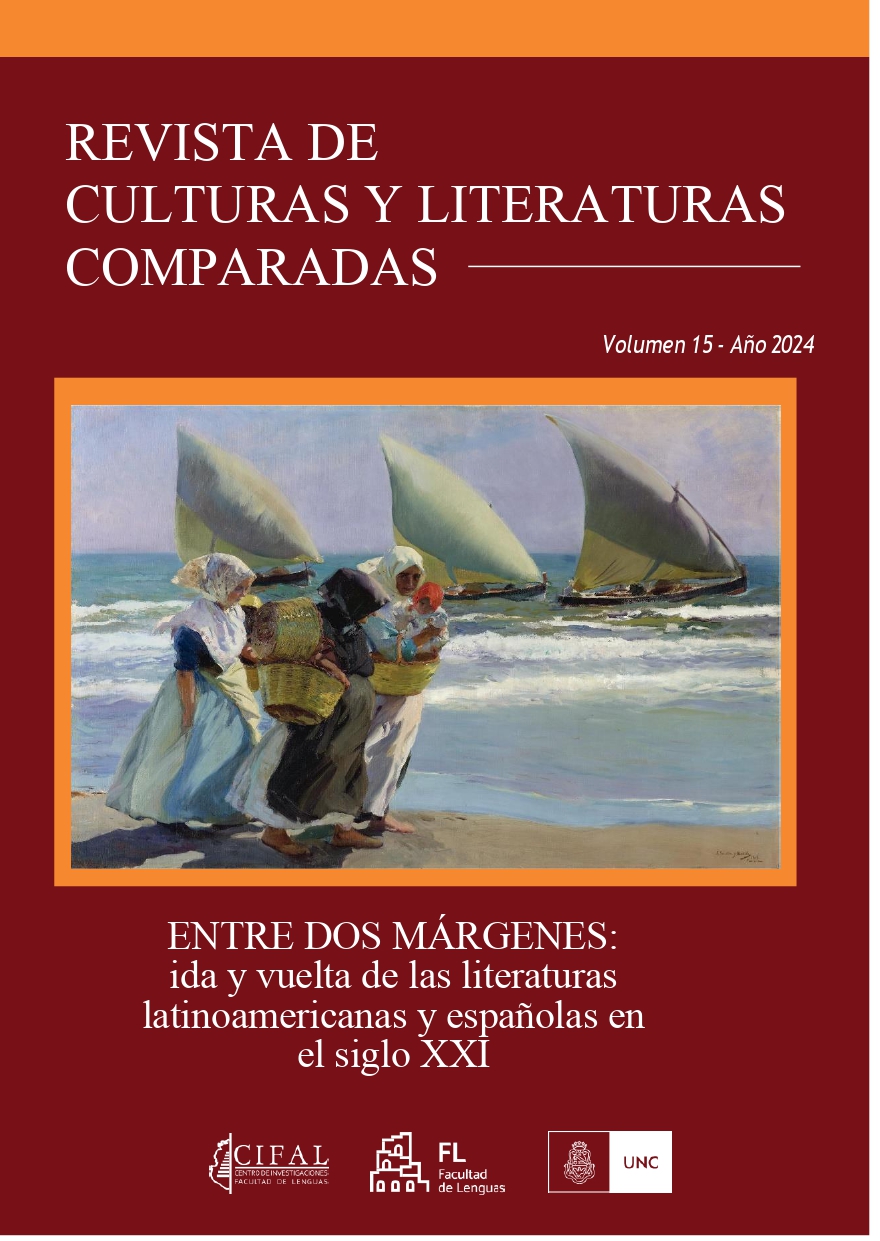Memory and writing. Between noises and silences. About Luis García Montero and Hebert Benítez Pezzolano
Keywords:
Luis Gracía Montero, Hebert Benítez Pezzolano, contemporary poetry, memory, poetry from Spain and AmericaAbstract
The correlation of Spanish literary poetics with Latin American ones has operated in many ways from the conquest to the present. The trend of Spanish influence on Latin American influence changes, especially at the end of the 19th century with the emergence of Modernism: Since then, deviations and mutual influences will occur in a non-linear direction, not a little marked by the new ideologies of the State of the century XX. An example of aesthetic deviation, without obvious influence, arises when comparing the poetics of Luis García Montero (Granada, 1958) with Hebert Benítez Pezzolano (Montevideo, 1960), although both use memory and, therefore, evocation to build their poetic worlds.
Downloads
References
Arbeleche, Jorge. (2017). “Comentarios sobre Sesquicentenario”. En Benítez Pezzolano, H. Sesquicentenario. Montevideo: Antítesis.
Benítez Pezzolano, Hebert. (2004). Matrero. Montevideo, La Gotera.
--- (2017). Sesquicentenario. Montevideo, Antítesis.
Díaz de Castro, F. (2020). “La poesía reciente de Luis García Montero: de Vista cansada a Balada en la muerte de la poesía”. Universidad de Illes Balears.
Ferrero, Graciela (2011). “Cernuda en dos poetas posteriores: Gil de Biedma y Luis García Montero”, Rev. Abehache, año 1, N.º 1
García Montero, L. (1998). “La poesía de la experiencia”. Rev. Litoral, 217/218, 13–21.
http://www.jstor.org/stable/43403249.
---. (2008). Vista cansada. Madrid, Visor. Impreso.
Maia, C. (2017). “Comentarios sobre Sesquicentenario”. En Benítez Pezzolano, H. Sesquicentenario. Montevideo: Antítesis.
Downloads
Published
Issue
Section
License

This work is licensed under a Creative Commons Attribution-NonCommercial-NoDerivatives 4.0 International License.
Aquellos/as autores/as que tengan publicaciones con esta revista, aceptan los términos siguientes:
a) Los/as autores/as conservarán sus derechos de autor y garantizarán a la revista el derecho de primera publicación de su obra, el cual estará simultáneamente sujeto a la Licencia de reconocimiento de Creative Commons.
b) La cesión de derechos no exclusivos implica que la publicación de los artículos en la presente revista no quita la posibilidad o el derecho al autor/a de publicar su obra de manera posterior en otras revistas u órganos editoriales y la autorización por parte de los/as autores/as para que el trabajo sea depositado en los repositorios institucionales, tales como el Portal de Revistas de la Universidad Nacional de Córdoba.



